Is Russia planning a ‘false flag’ attack on Moldova?
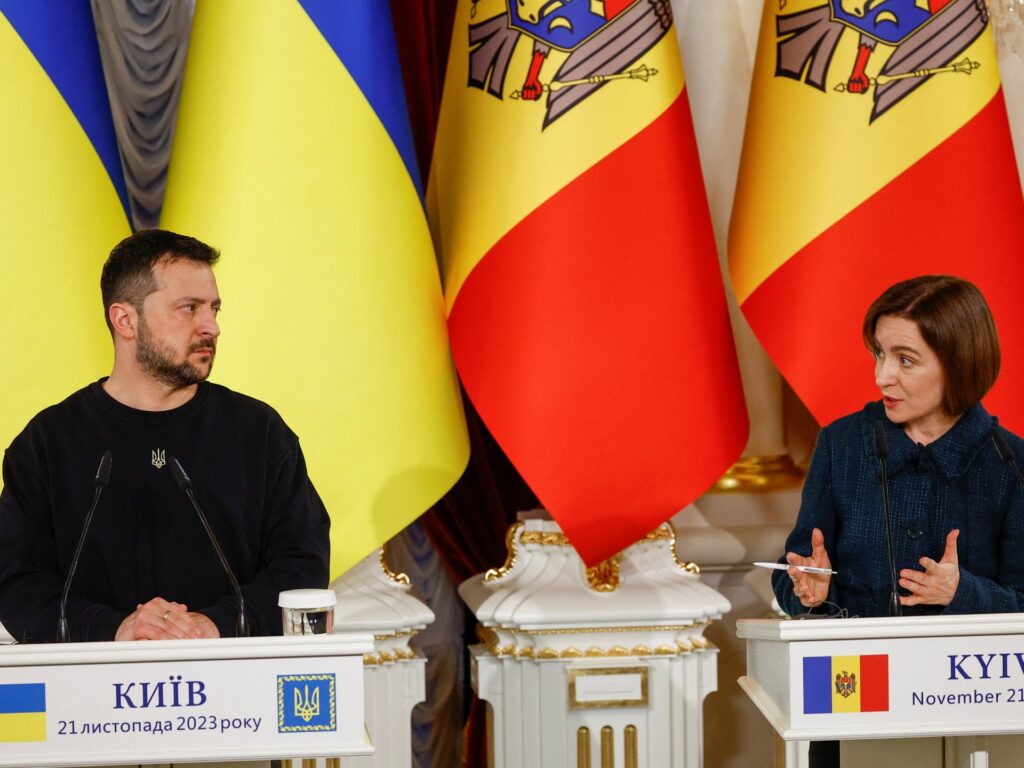
Russia has accused Moldova of plotting a military operation in Transnistria, a Russian-backed secessionist region, setting off concerns among some analysts that Moscow might be a “false flag” attack in Moldova. Russian intelligence said earlier this week that Moldova’s President Maia Sandu was planning a military operation in Transnistria, which borders Ukraine. Sandu was sworn in for her second term as president on Tuesday. On Wednesday, Russia’s Ministry of Foreign Affairs claimed that NATO was turning Moldova into a weapons hub for Ukraine, an accusation that is only likely to further fuel fears that Moscow might be seeking a justification for potential action against its smaller neighbour. Here is more about what is going on with Russia and Moldova — and what to expect. What has Russia alleged? On Monday, Russia’s Foreign Intelligence Service said that Moldova’s Sandu was planning a military operation in Transnistria. Russian intelligence speculated that the military operation could escalate into war. Advertisement Sandu’s chief of staff, Adrian Balutel, refuted the claims, insisting that the country had no such plans to militarily enter Transnistria, even though it claims the territory as a part of Moldova. Then, on Wednesday, Russia added a new allegation — that the US-led NATO had transferred a large number of weapons to Moldova in recent months. Maria Zakharova, the Russian foreign ministry spokesperson, said that Moscow believed these weapons were ultimately intended for Ukraine. She cited Sandu’s pro-Western leanings to bolster her claims. In recent months, Russian President Vladimir Putin has increasingly suggested that not just Ukraine, but other countries that help it in its war against Moscow could potentially be treated by the Kremlin as enemies that it might attack. What are the ‘false flag’ concerns? Since Russia launched its full-scale invasion of Ukraine in February 2022, Sandu has raised the alarm that Moldova could be Moscow’s next target, urging Western leaders to address Moldova’s concerns. When Sandu was sworn in for her second term this week in the capital Chisinau, she said, “We managed to open the door wide to the European Union.” Moldova has been a candidate country for the EU since June 2022, waiting for Brussels to formally accept its request to join the group. The Kremlin’s latest accusations, say analysts from the Washington, DC, based Institute for the Study of War, could be part of a larger plan to disrupt Moldova’s accession into the European Union (EU), by destabilising it. The Kremlin, the ISW cautioned in a report, could also be setting conditions “for a false flag operation in Transnistria”. Advertisement What is Transnistria? Transnistria is a Russia-allied breakaway region of Moldova, sandwiched between part of the Dniester River in Moldova, and Ukraine. Romania lies to its West. The region broke away from Moldova in 1990. In September 2006, it passed a referendum reasserting its independence and calling for a union with Russia. This referendum was not recognised by Moldova. In February 2022, leaders of Transnistria issued an appeal to Russia for protection. The appeal came days after the Ukraine war broke out, and was similar to appeals made to Russia by pro-Moscow leaders in parts of Ukraine, which Russia used as justification to take over Crimea in 2014, and large chunks of the Luhansk and Donetsk provinces in 2022. Internationally, Transnistria is recognised as belonging to Moldova, but Europe views the region as occupied by Russia since 2022. Transnistria hosts Russian troops, as well as a major Russian weapons storage facility, the Cobasna ammunition depot. Presently, 1,500 Russian soldiers are stationed within the breakaway Moldovan region, according to a report published by Harvard International Review in October. What are other ways Russia is pressuring Moldova? Political: Moldova voted in a presidential election last month amid claims of Russia meddling. However, the pro-Western Sandu won 55.33 percent of the vote, defeating former prosecutor general Alexandr Stoianoglo, who had the backing of the Russia-leaning Socialist Party. In a report published earlier this year, London-based think tank Chatham House said that research by the think tank “suggests that Moscow is also targeting the Moldovan public information space with toxic disinformation”. Advertisement Moldova’s national security service has also alleged that pro-Russian oligarchs in Moldova have paid millions of euros to stage antigovernment protests and commit election fraud. These include former Moldovan parliamentarian Ilan Shor, who was convicted in absentia for fraud charges in January. Energy: Meanwhile, Moldova faces an energy crisis. Moldova receives about 2 billion cubic metres (71 billion cubic feet) of gas from Russia annually. Since 2022, all this gas is sent into Transnistria. Transnistria then sells electricity, generated using Russian gas, to Moldova. However, this gas comes through a pipeline that passes through Ukraine. Kyiv has now decided that it will no longer allow the transit of this gas. Sandu has accused Gazprom, the Russian gas giant, of refusing to consider the use of an alternative pipeline, and has tried to prepare Moldova for what she has said will be a “harsh” winter without Russian gas. Russia’s gas supply to Moldova is expected to end on January 1, 2025. Earlier in December, Moldova declared a state of emergency over the impending shortage. Transnistria then sells electricity, fuelled by Russian gas, to Moldova. Violence: In April 2022, explosions targeted the Ministry of State Security in Tiraspol, the largest city in Transnistria. A day later, more explosions destroyed two powerful radio antennas among other facilities in Transnistria. Ukrainian President Volodymyr Zelenskyy, alongside other allies of Ukraine, said these explosions were also false flag attacks orchestrated by Russia to portray Transnistria as being under attack from Moldova — because of Moldova’s support for Ukraine. Advertisement Adblock test (Why?)
Israeli forces kill dozens in Gaza as ceasefire talks face challenges
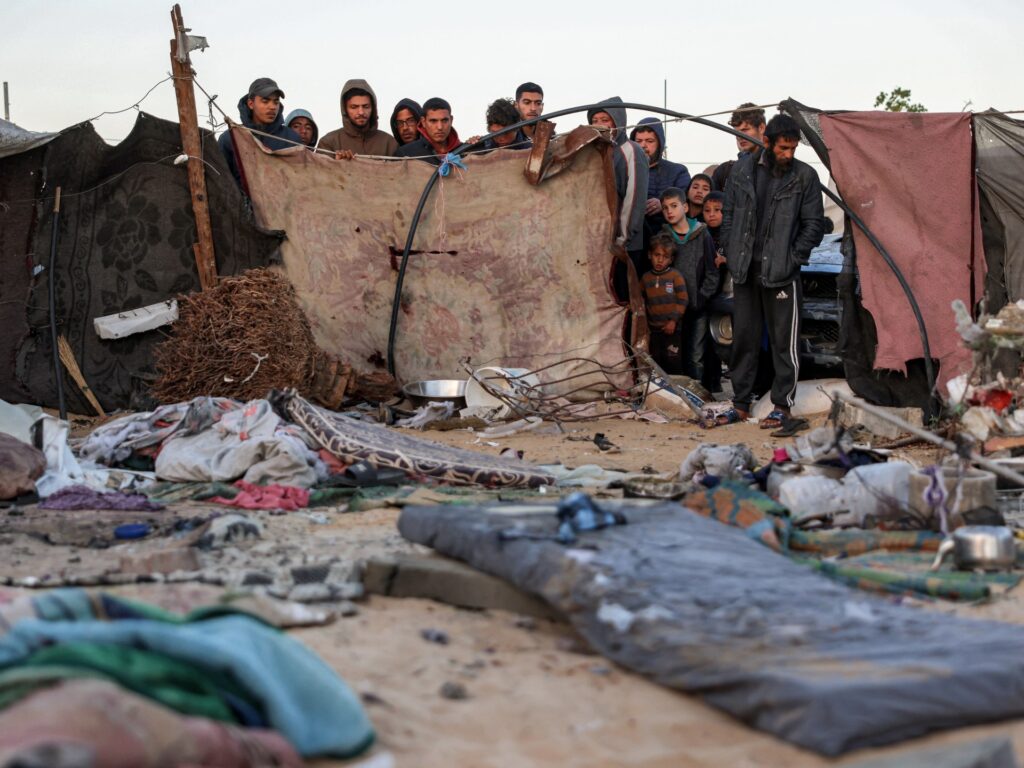
Israeli forces are pounding the besieged Gaza Strip, killing at least 25 Palestinians and wounding dozens more as indirect ceasefire talks between Israel and Hamas face more obstacles. Medics in the bombarded enclave said the Israeli military targeted yet another school sheltering displaced families on Wednesday in the Gaza City suburb of Sheikh Radwan. The strike killed three Palestinians, including a child, and injured several others. The attack came shortly after an earlier strike targeted a residential home in Gaza City, killing a pregnant woman. According to Al Jazeera’s Hind Khoudary, reporting from Deir el-Balah in central Gaza, medics were able to save the baby but “lost the mother”. “The situation is dire on every level across the Gaza Strip,” Khoudary said. “Elsewhere, a very famous Palestinian writer [Walaa Jumaa al-Ifranji] was killed along with her husband [Ahmed Saeed Salama] in an Israeli attack on their home south of the Nuseirat refugee camp,” in central Gaza, she added. Advertisement An Israeli attack on the Bureij refugee camp in central Gaza also killed two people on Wednesday. Separately, several Palestinians were killed and wounded in al-Mawasi, an area Israel has declared a “safe zone” for people forced to flee their homes in southern Gaza’s Khan Younis, where the military said it carried out a strike against a Hamas fighter. The Israeli military routinely targets displacement camps as well as schools-turned-shelters, killing mostly women and children in its genocide since October last year, which has killed more than 45,000 Palestinians. The military also targets hospitals and medical facilities. In the besieged north, where Israeli forces launched a renewed ground offensive more than two months ago, one of the last partially operating hospitals in Gaza has come under intense Israeli attack. An Israeli siege on Kamal Adwan Hospital has intensified over the past few days, and Al Jazeera’s Hani Mahmoud reports that it has now been “rendered nonoperational given all the constant attacks and the use of explosive devices”. Gaza’s Ministry of Health said Israeli forces have also continued to besiege two other medical facilities that are barely operational as they surround Beit Lahiya, Beit Hanoon and Jabalia. The Israeli army forced officials at the Indonesian Hospital to evacuate patients and staff on Tuesday and continued to operate close to nearby Kamal Adwan Hospital. They also ordered the emptying of that hospital, but officials there have refused, citing risks to dozens of patients. Advertisement Palestinians have accused Israel of seeking to permanently depopulate northern Gaza to create a buffer zone. The Israeli attacks came as Palestinians in Gaza saw yet another sombre Christmas. Pope Francis denounced the “extremely grave” humanitarian situation in Gaza and appealed for the freeing of Israeli captives held by Hamas in his traditional Christmas address at the Vatican. “May there be a ceasefire, may the hostages be released and aid be given to the people worn out by hunger and by war,” he said. Ceasefire talks hampered Meanwhile, Hamas and Israel traded blame on Wednesday over the failure to conclude a ceasefire agreement despite progress reported by both sides in the past days. Hamas said Israel had set new conditions while Israeli Prime Minister Benjamin Netanyahu accused the group of going back on understandings already reached. “The occupation has set new conditions related to withdrawal, ceasefire, prisoners, and the return of the displaced, which has delayed reaching the agreement that was available,” Hamas said in a statement. Hamas said, however, that it was showing flexibility and the talks, mediated by Qatar and Egypt, were going in a serious direction. Netanyahu blamed Hamas, saying the group “continues to lie, is reneging on understandings that have already been reached and is continuing to create difficulties in the negotiations”. Israeli negotiators returned to Israel from Qatar on Tuesday evening for consultations about a deal after a significant week of talks, Netanyahu’s office said on Tuesday. Advertisement The United States and the two Arab mediators have stepped up efforts to conclude a deal in the past two weeks. Adblock test (Why?)
Erdogan says YPG ‘will be buried’ in Syria if it doesn’t lay down arms
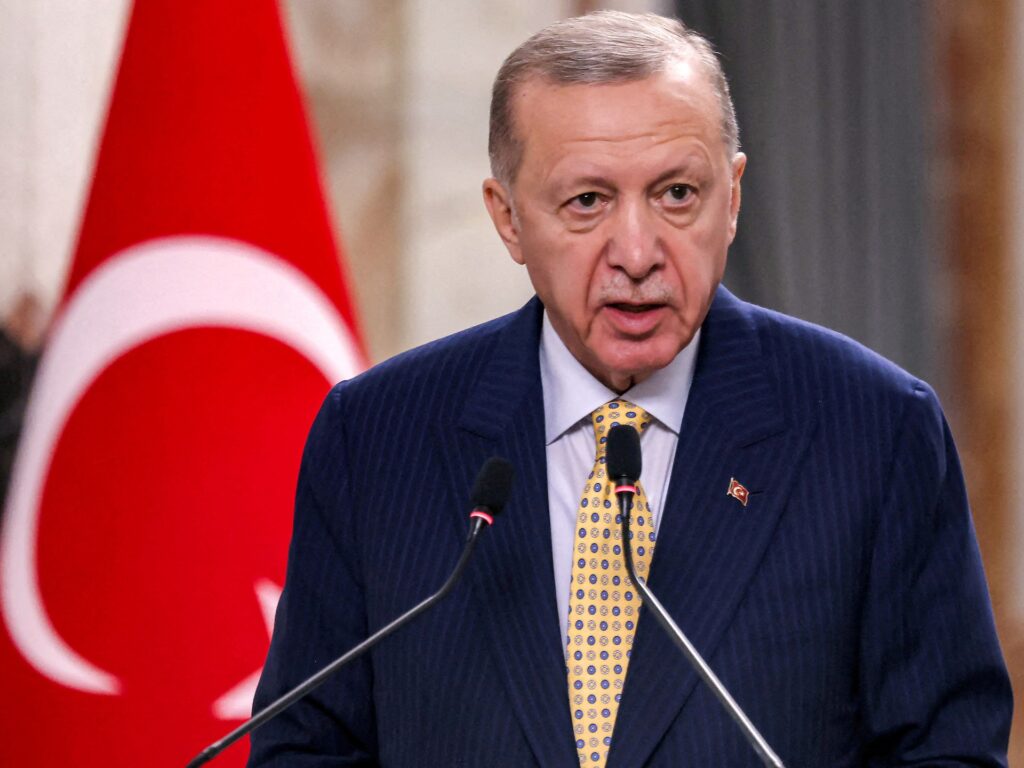
Ankara has repeatedly insisted that the Kurdish YPG militia must disband and called on the US to stop supporting it. Turkish President Recep Tayyip Erdogan has warned that Kurdish fighters in Syria will either lay down their weapons or “be buried”, amid hostilities between Turkiye-backed Syrian rebels and other armed groups since the fall of former Syrian President Bashar al-Assad earlier this month. Following al-Assad’s ouster on December 8, Ankara has repeatedly insisted that the Kurdish YPG militia must disband, asserting that the group has no place in Syria’s future. The change in Syria’s leadership has left the country’s main Kurdish factions on the back foot. “The separatist murderers will either bid farewell to their weapons, or they will be buried in Syrian lands along with their weapons,” Erdogan told lawmakers from his ruling AK Party in parliament on Wednesday. “We will eradicate the terrorist organisation that is trying to weave a wall of blood between us and our Kurdish siblings,” he added. Turkiye views the YPG militia – the main component of the United States-allied Syrian Democratic Forces (SDF) – as an extension of the outlawed Kurdistan Workers’ Party (PKK) militia, which has waged a rebellion against the Turkish state since 1984. Advertisement The PKK is designated a terrorist organisation by Turkiye, the US and the European Union. Ankara has repeatedly called on its NATO ally Washington and others to stop supporting the YPG. Al Jazeera’s Sinem Koseoglu, reporting from Istanbul, said this is not a surprising statement by Erdogan “as it is the official rhetoric of the Turkish government”. Since the YPG is considered “the Syrian branch of the PKK, Ankara believes that they should either lay down arms, or they should fight and they will be defeated,” Koseoglu said. Earlier, Turkiye’s defence ministry said the armed forces had killed 21 YPG-PKK fighters in northern Syria and Iraq. SDF commander Mazloum Abdi acknowledged last week the presence of PKK fighters in Syria for the first time, saying they had helped battle ISIL (also known as ISIS) fighters and would return home if a total ceasefire was agreed with Turkiye, a core demand from Ankara. He denied any organisational ties with the PKK. Erdogan also said Turkiye would soon open its consulate in Aleppo, adding that Ankara expected an increase in traffic at its borders in the summer of next year as some of the millions of Syrian migrants it hosts begin to return to their homes. Adblock test (Why?)
Travelling in a flight? Know these new hand baggage rules
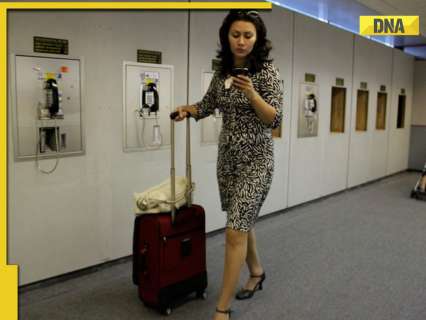
According to new aviation rules, one hand baggage with 7 kgs of weight would be allowed per passenger, said the Bureau of Civil Aviation Security (BCAS) on Wednesday.
Here’s how many US service members are spending the holidays away from home deployed overseas
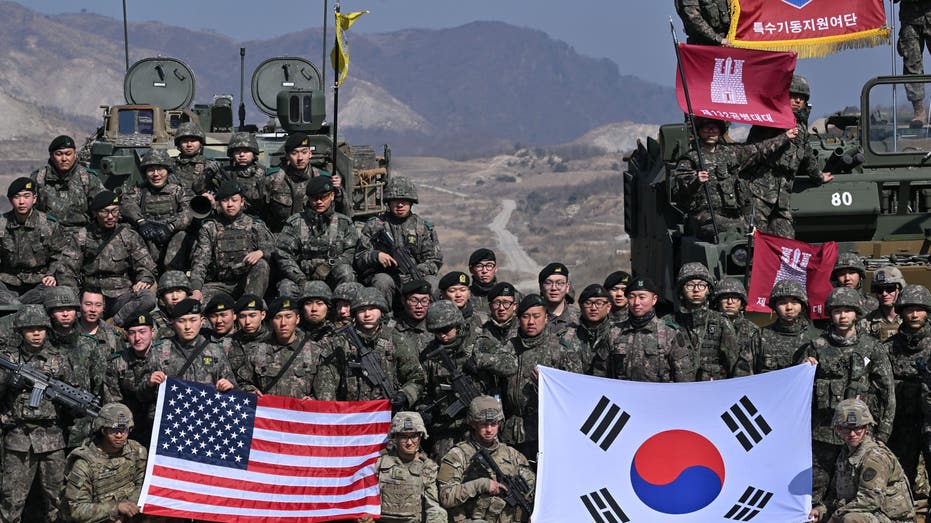
As millions of Americans gather together with loved ones to celebrate the Christmas holiday and ring in the new year, hundreds of thousands of American men and women in uniform will mark the holidays away from family in decidedly less festive corners of the world. As of June, 165,830 U.S. service members were on deployment across the Middle East, Indo-Pacific region and Europe. That figure has likely ticked higher amid recent unrest across the Middle East, and it doesn’t include service members working at U.S. bases over the holidays and civilian personnel on overseas contracts. Here’s a look at where service members will spend the holidays on deployment across the world: Around 43,000 troops are stationed across the Middle East as of October, an increase from the usual 34,000 amid the recent unrest and outbreak of war between Israel and Iranian proxy forces Hamas and Hezbollah. The Pentagon announced in October it would be moving troops into Cyprus to prepare for escalating unrest in Lebanon. And last week the Pentagon divulged that some 2,100 troops were in Syria — not the 900 they had long claimed. Another 1,000 troops are in Iraq carrying out missions to thwart ISIS. U.S. forces are stationed across Europe to support NATO forces and deter any potential Russian aggression. Major areas of deployment include Germany (34,894), Italy (12,319) and the United Kingdom (10,180). SECOND US NAVY FIGHTER JET NARROWLY AVOIDED BEING SHOT DOWN IN ‘FRIENDLY FIRE’ INCIDENT: SOURCE U.S. forces partner with allies in Asia to conduct joint exercises and coordinate on countering the threat of China and Areas of deployment include South Korea (23,732), Japan (52,852) and Guam (6,453). TWO US NAVY PILOTS SHOT DOWN OVER RED SEA IN APPARENT ‘FRIENDLY FIRE’ INCIDENT: US MILITARY Secretary of Defense Lloyd Austin thanked U.S. troops for serving over the holiday season in a Christmas message. “We know firsthand the holidays can be especially hard if you’re far away from your loved ones. So for our troops stationed around the globe, we deeply appreciate your sacrifice,” he said. “We know that your families serve too, and our military families are the foundation of America’s strength.”
Marjorie Taylor Greene wants death penalty for migrant who allegedly set woman on fire on subway: ‘Finish him’
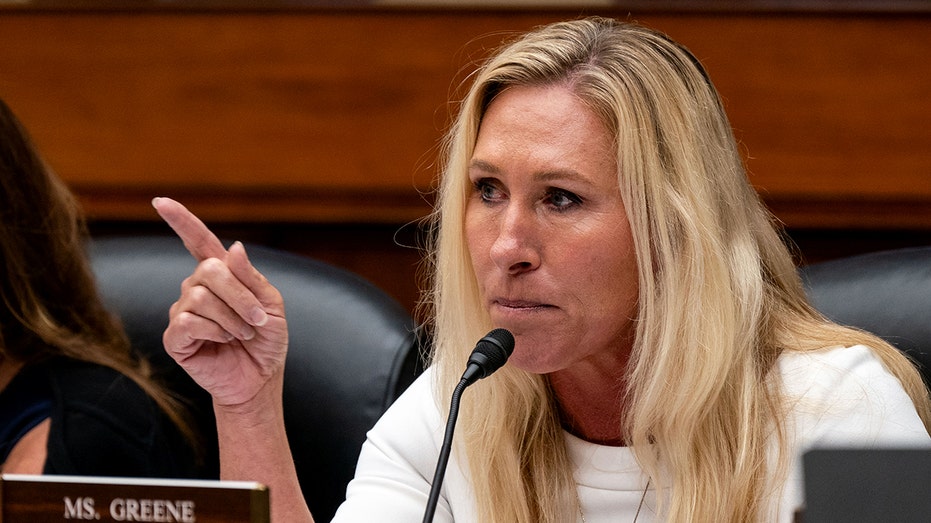
Rep. Marjorie Taylor Greene, R-Ga., is calling for the swift trial, conviction, and execution of the man charged in connection with the gruesome murder of a woman burned alive on a New York City subway. The outspoken Republican took to social media on Tuesday to address the incident, in which Guatemalan national Sebastian Zapeta, 33, is accused of setting a woman on fire while on a train in Brooklyn. “Death penalty, don’t waste money on a lengthy trial. Convict him and finish him. What he did is so incredibly evil,” Greene declared in a post on X. “I can’t watch the video anymore. And how it seems like no one tried to save her is beyond me. Maybe they did but it doesn’t seem like it.” Zapeta faces charges of first- and second-degree murder, and first-degree arson, with a maximum sentence of life imprisonment with no parole. SANCTUARY CITY NEW YORK PRESSURED TO MAKE DRASTIC CHANGE AFTER ILLEGAL MIGRANT ALLEGEDLY BURNS WOMAN ALIVE Greene is not the only member of Congress to weigh in on the case. Rep. Anna Paulina Luna, R-Fla., also called for capital punishment. “Death penalty,” she tweeted. SUSPECT ACCUSED OF BURNING WOMAN TO DEATH ON NYC SUBWAY IS PREVIOUSLY DEPORTED ILLEGAL IMMIGRANT Rep. Andy Biggs, R-Ariz., declared in a post on X, “A woman was intentionally lit on fire on the subway today. Democrats’ soft-on-crime policies do not work.” CRITICS WARN OF ‘DANIEL PENNY EFFECT’ AFTER WOMAN BURNED ALIVE ON NYC SUBWAY CAR AS BYSTANDERS WATCHED New York City Police Department Commissioner Jessica Tisch noted during remarks on Sunday that Zapeta allegedly “used what we believe to be a lighter to ignite the victim’s clothing, which became fully engulfed in a matter of seconds.” Assistant District Attorney Ari Rottenberg alleged in court on Tuesday that the suspect fanned the fire with a shirt. Zapeta’s next court appearance is scheduled for December 27, according to online records. A U.S. Immigration and Customs Enforcement (ICE) spokesperson said in a statement that Zapeta had been removed from the U.S. in 2018 and then re-entered the country illegally at some point “on an unknown date and location.” Fox News’ Bill Melugin contributed to this report
Uttarakhand: Four killed, several injured after bus falls into gorge in Nainital
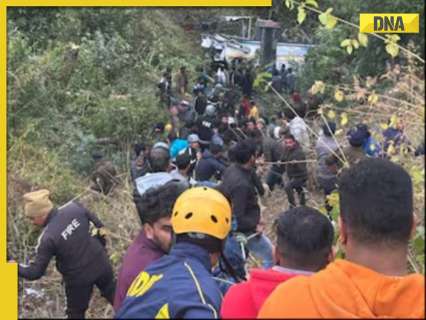
At least four people were killed and 21 left injured after a roadways bus carrying around 25 passengers fell into a gorge in Uttarakhand’s Nainital district on Wednesday, i.e., December 25, Times of India reported.
The top five absurd tips from liberal pundits for surviving holidays with Trump-voting family
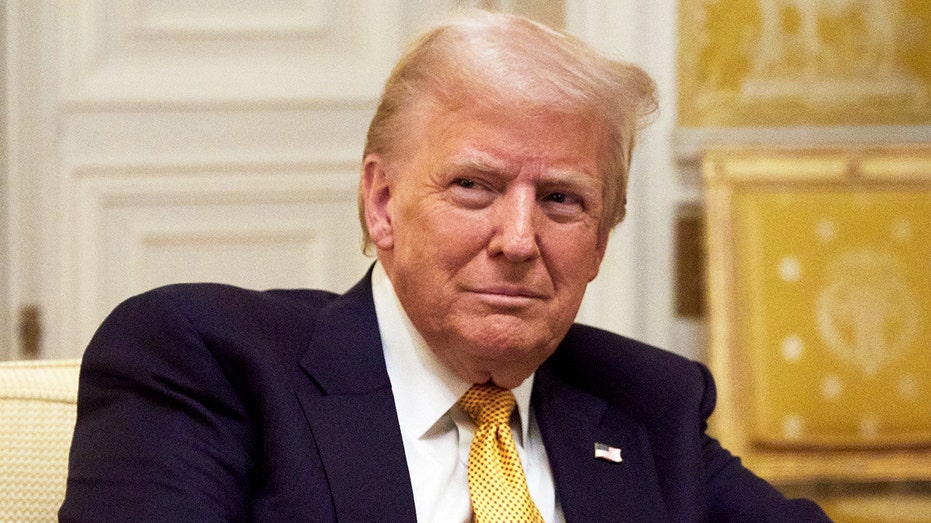
As the smell of pine fills the air and the stockings are hung with care, some liberal media outlets served up advice that’s as hard to swallow as a dry fruitcake. Their mission? Equipping you to survive holiday conversations with Trump-supporting relatives. From suggested scripts that sound more like hostage negotiations to icebreakers better suited for therapy sessions than a festive family gathering, here are five of the most over-the-top ideas mainstream media is dishing out to keep your Christmas “Trump-proof.” For one HuffPost contributor, the election of Trump wasn’t just a political turning point – it was a holiday deal-breaker. Faced with the knowledge that her husband and his family voted for the former president, she decided to cancel both Thanksgiving and Christmas altogether. No lights, no carols, no awkward family dinners. “But I will not give thanks and hold hands in a circle with people who voted for a party that wants to take rights away from LGBTQ people,” guest contributor Andrea Tate wrote. “I will not pass the turkey to someone who supports people who have signaled they will cause harm to people with disabilities and the elderly. I will not sit by a Christmas tree celebrating the birth of Jesus and sipping eggnog when I know how many people may now find themselves in grave – even deadly – danger because they cannot get the reproductive care they need. I will not unwrap gifts given to me by people who voted for a party that has talked about building internment camps and mass deportation.” 10 SECRET SANTA GIFTS FOR UNDER $30 YOU CAN FIND ON AMAZON After a psychologist made headlines last month arguing people should avoid Trump-supporting relatives this holiday season, “The View” co-host Sunny Hostin agreed, saying many people feel “someone voted not only against their families but against them.” Shortly after the election, Yale University chief psychiatry resident Dr. Amanda Calhoun spoke to MSNBC host Joy Reid about how liberals who are devastated by Trump’s re-election can cope with the news, including separating from loved ones. “There is a push, I think just a societal norm that if somebody is your family, that they are entitled to your time, and I think the answer is absolutely not,” Calhoun told the talk show host. “So if you are going to a situation where you have family members, where you have close friends who you know have voted in ways that are against you, like what you said, against your livelihood, it’s completely fine to not be around those people and to tell them why, you know, to say, ‘I have a problem with the way that you voted, because it went against my very livelihood and I’m not going to be around you this holiday.’” If your holiday feast feels more like a political debate than a festive gathering, Time magazine has your back with a list of 11 carefully crafted phrases to defuse family tension. The top pick? A simple yet stern declaration: “I won’t be talking about politics today.” Framed as a way to create a politics-free safe zone, the advice encourages setting boundaries with relatives whose views you loathe – so you can focus on what really matters. “Emphasize that you want to keep the focus on the festivities at hand, and ask for a commitment to avoid polarizing topics. If the conversation still ends up turning in that direction, shut it down: ‘OK, that’s enough of that,’ or, ‘We’re not talking about that here today,’” the Time article states. WHITE HOUSE SELECTS NORTH CAROLINA FAMILY’S CHRISTMAS TREE FARM TO PROVIDE 2024 TREE The Associated Press has a simple solution: take a breather. Whether the conversation veers into a political minefield or Uncle Bob just won’t stop, the AP suggests calmly excusing yourself from the fray. No need for a dramatic exit – just a composed stroll to the kitchen, the porch, or anywhere that isn’t the battlefield of your family table. “Things getting intense? Defuse the situation. Walk away. And it doesn’t have to be in a huff. Sometimes a calm and collected time out is just what you – and the family – might need,” the article recommends. HOW TO THIEF-PROOF YOUR CHRISTMAS DECORATIONS In a searing MSNBC op-ed, writer Amira Barger challenges the notion that family gatherings should always be sacred if they have different beliefs. The author doesn’t differentiate between Trump-supporting family members and liberal voters. “I have come to realize that being related by blood doesn’t necessarily mean that those gathered will protect you,” Barger wrote. “Finding family isn’t always about unity, or forcing yourself to remain in a place that causes you harm. Sometimes, it’s about clarity, and the difficult choices that come with it. “This fall, after a conversation that spanned more than 1,000 texts in various family group chats, my husband and I made the difficult decision to hold a hard and fast boundary with much of my immediate family, whose stated values and votes made it clear to us that we could not feel comfortable around them.” She adds, “These were decisions we did not make lightly or hastily, but sometimes the best course of action is, in fact, to ban the bad actors.” Fox News Digital’s Alexander Hall contributed to this report.
Ken-Betwa river linking project: Govt’s ambitious project, what is it and how it can impact environment?
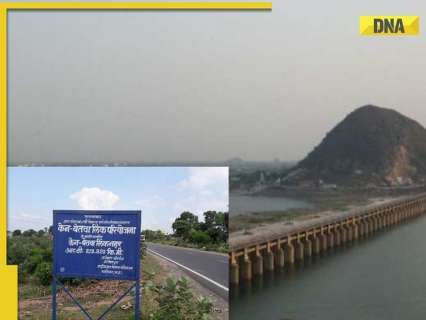
The Ken Betwa river linking project is the central government’s ambitious project inaugurated by Prime Minister Narendra Modi on Wednesday. However, the project is marred with concerns and objects due to its environmental impact, especially the Panna Tiger Reserve with bustling tiger population.
Kerala Lottery Result Today December 25 Live Updates: Fifty Fifty FF 122 Wednesday lucky draw

This lottery is published in 12 series, with approximately 1.08 crore tickets available for purchase each week. For those eagerly anticipating the results, the winning numbers for Fifty Fifty FF-122 will be available here later today. The top prize for this lottery is a substantial Rs 1 crore.
